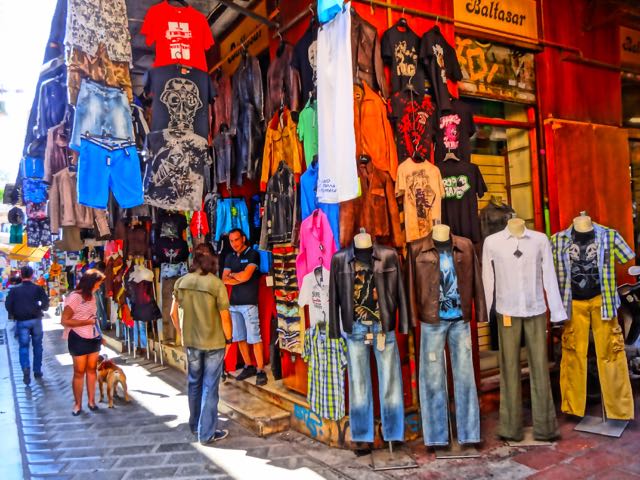Technology, the store experience and sustainability emerge as main trends that will influence shopper behaviour according to the latest m1nd-set consumer insights study. The study, conducted by the leading travel and travel retail research agency among 1500 consumers who have travelled internationally in the past 12 months, aimed to seek shoppers’ views on the key emerging retail trends and influencing factors that will impact their shopping behaviour in the future.
Technology advancements emerged as the number one influencing factor according to m1nd-set. The research details the top technological developments which shoppers say will have an impact on their behaviour. Among the key trends, same-day and next-day delivery options which have grown significantly during the pandemic, will become increasingly commonplace, forcing many retailers to rethink their supply chain logistics. Click-and-collect has seen significant growth in recent months also, the m1nd-set research reveals, with over 25% of shoppers expressing the importance of this feature among the delivery options.
Other trends cited in the research under ‘technology’ includes greater personalisation in the marketing and product offer to individual consumers; another development which will allow for greater personalisation, facial recognition, was cited as an influential new trend in the future. Visual search, which also responds to shoppers’ desire for instant satisfaction and fulfilment also emerged in the research. Augmented Reality (AR) shopping applications are set to increase in popularity according to the m1nd-set study, which reveals that more than three-quarters of shoppers in some developed markets expect retailers to provide AR as part of the shopping experience.
The research also highlights trends that have grown considerably as a result of the pandemic, and which shoppers interviewed for the study say will become a more regular part of the shopping experience. These include contactless solutions including payment, delivery and even contactless stores, where QR codes and even robotics are expected to become increasingly more common in the retail space. Social shopping is the final trend cited under ‘technology’, where younger consumers – Millennials and Gen Z shoppers in particular – have a high tendency and propensity to purchase from ‘shoppable’ Instagram or Pinterest posts as well as via live-streams.
Peter Mohn, CEO & Owner at m1nd-set commented on the research findings: “The research underlines the growing importance the pandemic has had on both sustainability and technology in retail as well as the importance of unique in-store experiences. Shoppers are unquestionably more sensitive to responsible consumption now and sustainable values must be an integral part of the shopping experience for retailers to remain relevant. It’s estimated that the pandemic has accelerated the shift to digital by around five years. Even when analysing the findings about the importance of the retail experience, we see that shoppers are looking for a more integrated experience, which combines both physical and digital – they want to experience in-store and purchase online. The growing focus on digital has implications for the travel retail sector too of course. The ‘immediacy’ trend regarding delivery, with the growth of same-day delivery, click-and-collect options and the curb-side pick-up model we see in high-street retail, will need to be mirrored in travel retail with a greater emphasis in the future on out-of-store pick-up locations between security and the gate or even seat-delivery on board the aircraft” Mohn continued.
The research identifies and acknowledges the investment that certain inflight retailers have been making in their online catalogue and home delivery service, and predicts that other airlines and their retail partners will inevitably follow their lead, as they compete for passenger ancillary spend.
Data to determine tomorrow’s travel retail winners
“The greater emphasis on digital is even likely to put the “inflight” retail offer on a more level playing ground with airport retailers," Mohn added, “especially given that airlines benefit from having direct access to the passenger data including highly valuable information such as travel class, frequency and whether a passenger is travelling with their family.
“This contextual and circumstantial data, Mohn concludes, “when properly ‘mined’ and managed, will be the new gold. All stakeholders are being forced to rethink their business models and revenue strategies. If Airlines start to capitalise on their unique asset and invest more in the data management for ancillary revenue purposes, this could be a gamechanger for the industry.”
Tags:m1nd-set
